
Your guide to blue-green algae poisoning in dogs

Dr Scott Miller
31 July 2023 | 4 minutes read
If your dog loves swimming in local lakes and hydrating themselves from puddles and ponds, they could be at risk of blue-green algae poisoning.
Expert vet Dr Scott Miller explains how to spot the algae, what symptoms to look out for, and how algae poisoning is treated in dogs.
- Why is blue-green algae poisonous to dogs?
> How much blue-green algae is toxic to dogs?
> How quickly does blue-green algae affect dogs? - How can I spot blue-green algae?
- Symptoms of blue-green algae poisoning in dogs
- What to do if you think your dog has algae poisoning
> Treatment for blue-green algae poisoning - How to protect your dog from blue-green algae
- Other questions about blue-green algae poisoning
> Can I get blue-green algae poisoning?
> Can cats be poisoned by blue-green algae?
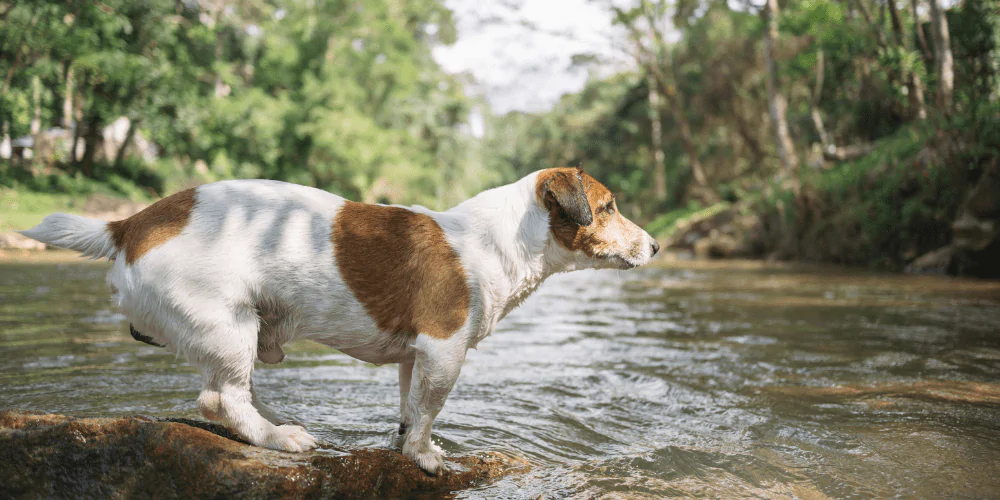
Why is blue-green algae poisonous to dogs?
Blue-green algae is a harmful bacteria found in stagnant or slow-moving bodies of water. This includes ponds, rivers, lakes, and even the sea.
The algae is poisonous to dogs as it can release different toxins that cause organ failure and other serious illnesses. Contact with this dangerous bacteria can also be fatal if left untreated.
Blue-green algae can be found all year round but tend to thrive in hot and sunny weather. You’ll tend to spot more of its large blooms in the summer months.
> How much blue-green algae is toxic to dogs?
Even a few small drops of water contaminated with blue-green algae can make your pup very ill.
> How quickly does blue-green algae affect dogs?
It often doesn’t take long for the signs of blue-green algae poisoning to appear. You’ll usually notice symptoms within a few minutes but some may only start to appear after a few days.
Symptoms can get worse quickly so it’s important to know what to look out for.

How can I spot blue-green algae?
It’s not always easy to spot blue-green algae if there isn’t clumping (blooms). Signs to look out for include:
- Scum on the water’s surface (these can be blue, green, brown, black, or red)
- Streaks on or under the water’s surface (blue, green, or brown)
- Flakes or dots (green or brown)
- Foam along the water edge
- Dead wildlife floating in the water
You can also find reported areas of blue-green algae on UK Centre for Ecology & Hydrology Bloomin’ Algae app. The app encourages you to submit your own sightings and help protect other pets and their owners.
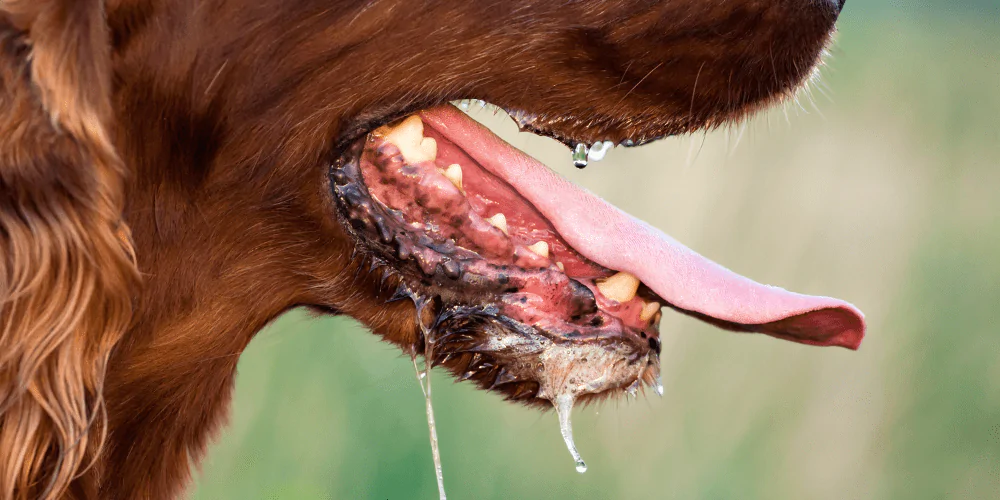
Symptoms of blue-green algae poisoning in dogs
Recognising the signs of blue-green algae poisoning as early as possible could help to save your dog’s life.
Symptoms can vary and include:
- Difficult breathing
- Vomiting and diarrhoea
- Drooling
- Excessive thirst
- Weakness/collapsing
- Disorientation
- Seizures
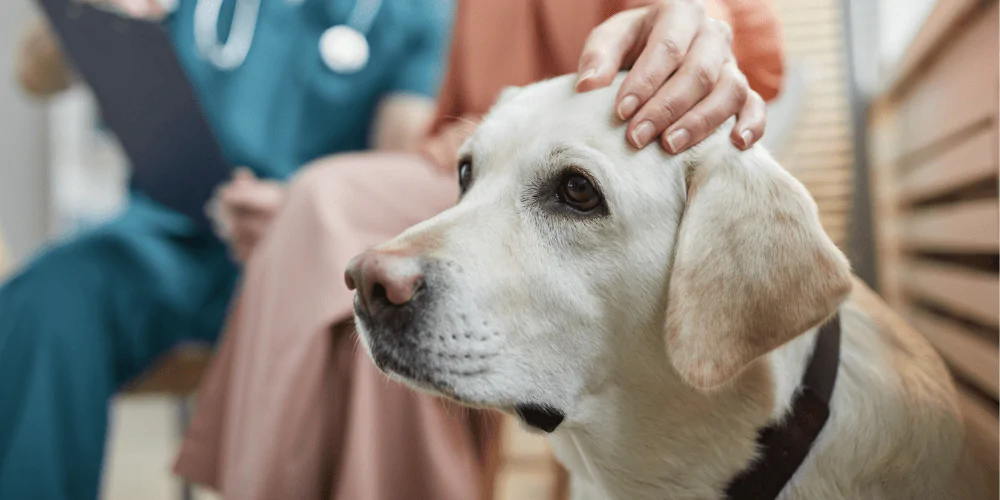
What to do if you think your dog has algae poisoning
Your dog will need urgent treatment if they have algae poisoning. Time is of the essence to avoid a fatal outcome.
- Speak to your vet immediately
- Don’t let your dog lick themselves as they could swallow more toxins
- Rinsing their fur may help to wash off some of the algae
> Treatment for blue-green algae poisoning
Depending on the severity of your dog’s symptoms, your vet may:
- Make your dog vomit to bring up the toxins
- Thoroughly clean them to remove any algae on their fur and skin
- Put your pup under intensive care which can include blood tests and IV drips
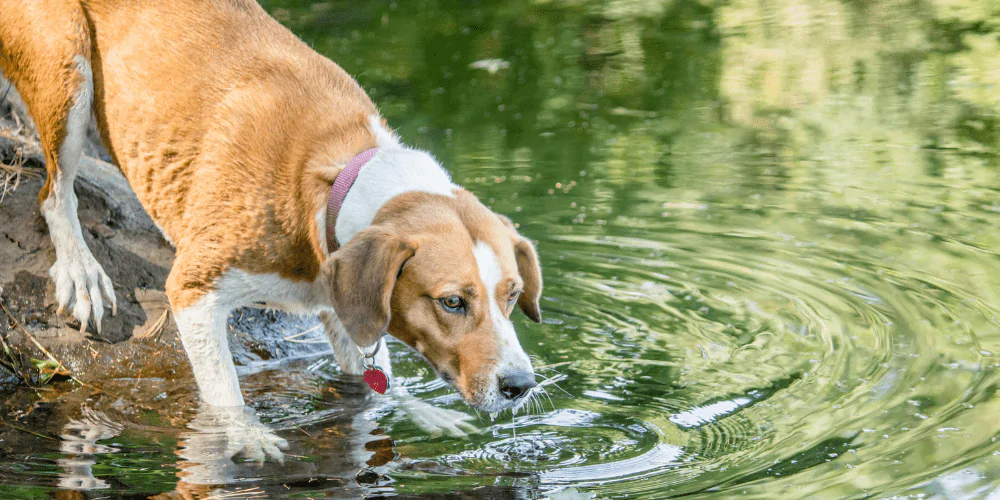
How to protect your dog from blue-green algae
There’s a few ways to help keep your dog safe from algae poisoning:
- Keep them on a lead when walking near bodies of water you don’t know
- Carefully check for signs of algae in the water before letting your dog swim
- Don’t let them drink from any stagnant water sources – bring clean water from home instead
- Keep an eye out for warning signs placed near bodies of water
- Check your local environmental agency website or the Bloomin’ Algae app for reports of algae in the area
- Walk in shaded areas to help keep your dog cool (instead of letting them cool down in lakes and rivers)
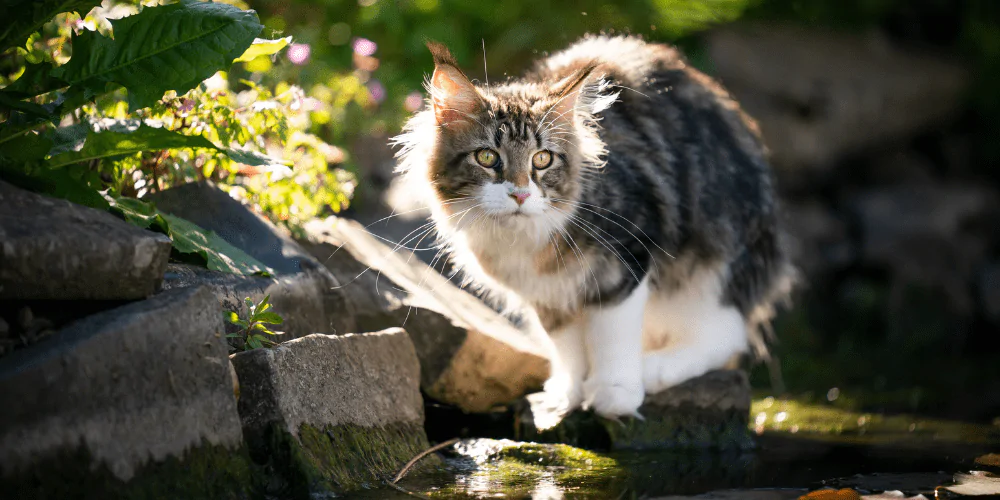
Other questions about blue-green algae poisoning
> Can I get blue-green algae poisoning?
Humans can also fall ill after coming into contact with blue-green algae.
Wear gloves when helping your dog and be sure to contact your doctor if you’re starting to feel unwell.
> Can cats be poisoned by blue-green algae?
Cats (and other animals) can fall ill from blue-green algae toxins. Contact your vet as soon as possible if you think your cat has been poisoned.


